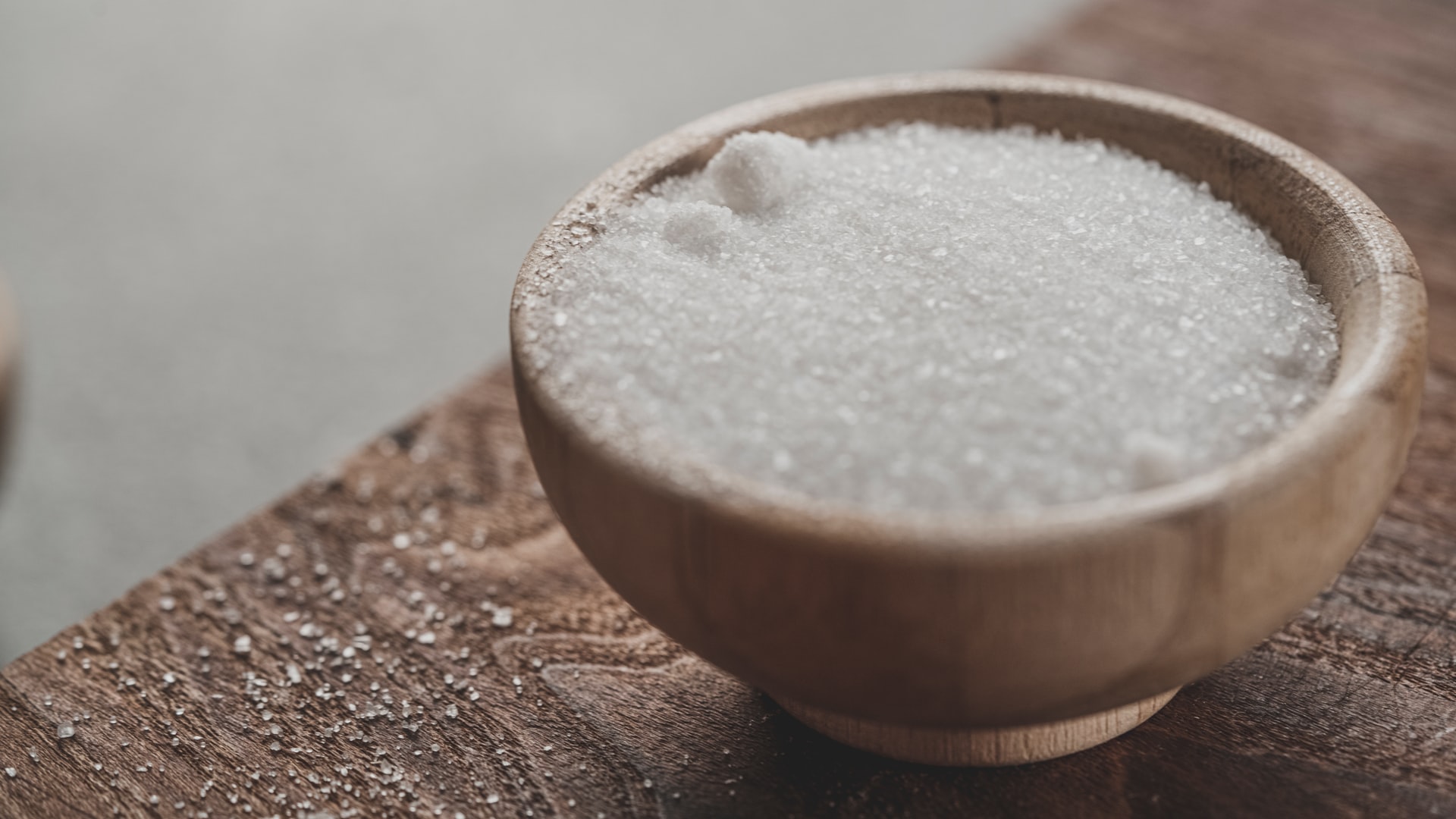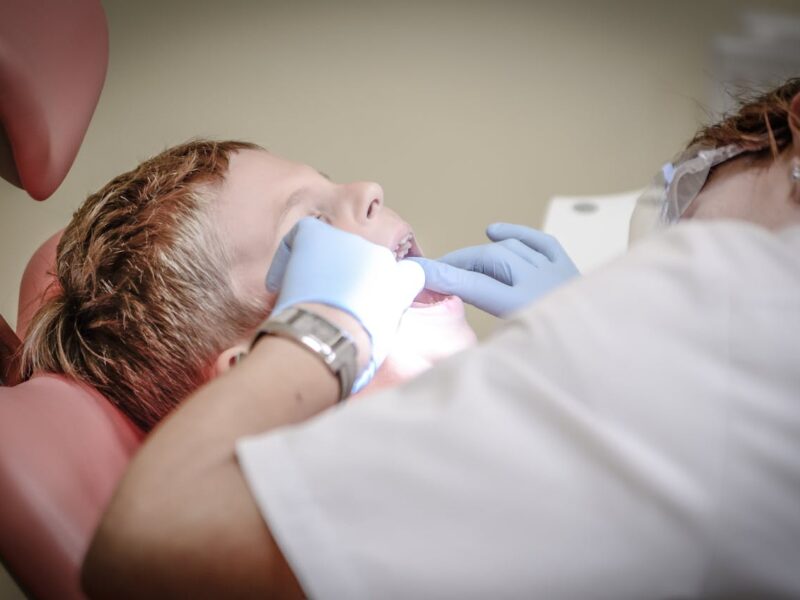Do you have a salty taste in your mouth and ask yourself, why does everything taste salty to me suddenly?
There are numerous causes why everything tastes salty to someone. It could be something as simple as a vitamin deficiency or a warning sign of something much worse.
Usually, there is nothing to be concerned about. But, it may occasionally be a symptom of a hidden medical issue. Salty taste in the mouth is caused by sodium ions entering the bloodstream through receptors in your mouth to detect saltiness.
A salty taste can be caused by eating salty food, having the flu, or damaged gums.
In this article, let’s explore the reason that can cause a salty taste in your mouth.

Contents
Dehydration
Dehydration is the most likely cause of salty taste, but everyone is different, so talk to your doctor if you are concerned.
Several things can cause dehydration, including not drinking enough water and excessive sweating or vomiting. It also affects people differently depending on their age and gender. If left untreated, dehydration can lead to heat exhaustion or even worst!
Here are a few ways to help avoid dehydration,
- Drink more water.
- Eat more fruits and vegetables.
- Stay away from salty foods and avoid caffeine, especially if you’re trying to lose weight or maintain weight while on the keto diet.
- If you’re drinking coffee, try switching to green or herbal tea. Or, if you must have caffeine-containing beverages, make sure they’re unsweetened and low-sugar—the less sugar in your system will help keep your cravings at bay!
- Exercise more often than usual: It’s essential not only for overall health but also because exercise helps regulate blood sugar levels which can be disrupted by certain medications such as antidepressants or birth control pills.
Infection In Oral Cavity
It could be an infection if you’re experiencing a salty taste in your mouth. This can also happen if you have a sore throat.
Swollen glands may also lead to a salty taste in the mouth. Other causes include white patches on your tongue (leukoplakia), bad breath, and saliva that is too salty due to diabetes mellitus type 2.
Dry Mouth
You may experience dry mouth as a symptom of Sjogren’s syndrome, a chronic autoimmune disorder that causes dry eyes and mouth. Depression or medication side effects can also cause a dry mouth.
A lack of saliva or water usually causes a dry mouth. If you’re having trouble swallowing because of this problem, your doctor might recommend some sort of treatment for it.
There are plenty of things you can do on your own that would help alleviate any discomfort associated with dryness:
- drink more water (1-2 glasses per day),
- chew sugarless gum occasionally throughout the day (gum helps stimulate saliva flow),
- brush your teeth after meals (this will help remove bacteria from between teeth).
Post-Nasal Drip
Post-nasal drip is a common cause of a salty taste in the mouth. It occurs when a postnasal drip drains down the back of your throat and mixes with saliva, which causes the sensation of saltiness.
The excess mucus that accumulates in this area can be caused by allergies, colds, or flu symptoms. If you have a post-nasal drip regularly, it’s not necessarily something to worry about but should be checked out by your doctor if it persists after several months.
Acid Reflux
Acid reflux, if left untreated, can cause everything to taste salty. Bile reflux can result in a similar situation. Both bile and acid reflux can occur separately or simultaneously, and both have comparable symptoms.
While bile reflux happens when liquid from the small intestine leaks into the esophagus and stomach, acid reflux happens when stomach acids flow into the esophagus.
Other signs you can experience include:
- nausea,
- frequent heartburn,
- coughing
- bile vomiting,
- weight loss,
- hoarseness,
- and an uncomfortable upper abdomen.
Gastroesophageal Reflux Disease (GERD)
If acid reflux is not treated, it can result in severe conditions such as GERD.
The esophagus, the tube that connects the mouth to the stomach, has two sphincters, or one-way valves, one at the top and the other at the bottom. In GERD, the lower valve (between the esophagus and stomach) is weaker, allowing stomach acid to seep into the esophagus. This leads to a burning sensation in the chest called heartburn.
A sour or salty taste may result from GERD. A 2017 study discovered that GERD affected people’s ability to taste salt. Some people observed that salt tasted stronger or weaker than usual.
Hormonal Changes
Hormonal changes can cause a salty taste in your mouth and other symptoms. These include:
- Dry mouth (which is often caused by hormonal changes)
- Metallic taste
- Bitter taste
Vitamin Deficiency
Your mouth will taste salty if your body has a specific nutritional shortfall, such as a vitamin deficiency.
Additionally, signs such as exhaustion, bewilderment, numbness in the hands and feet, or an irregular heartbeat are observed. Supplements are a simple way to treat nutritional deficits. For instance, nasal sprays and tablets are available for vitamin B-12 insufficiency.
Bleeding In Mouth
There can be blood in the mouth if the saltiness tastes metallic or rusty. Foods with sharp edges, such as chips or hard sweets, can lacerate the inside. Too much brushing or flossing can potentially damage the gums. An early sign of gingivitis, an inflammatory disorder of the gums, can be bleeding after brushing or flossing.
The Bottom Line
A dry tongue or dehydration are the two most common causes of a salty taste. If you get a salty taste, consult your healthcare professional if:
- Hoarseness or a change in your voice.
- There is a lump in your neck.
- Salivary glands under your jaw or in front of your ears swell.
- Difficulty swallowing or chewing.
- Other medical issues include autoimmune illness, diabetes, heart disease, kidney disease, etc.



